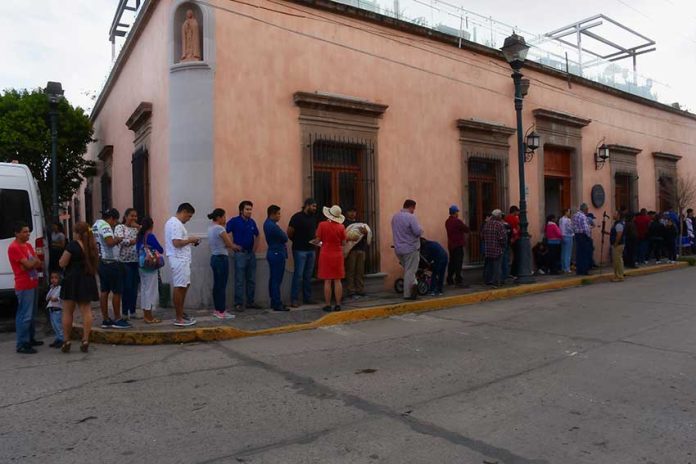On December 1, Andrés Manuel López Obrador (AMLO) will be sworn in as the 65th president of Mexico, having won over 50% of the vote in the recent election. It was historic.
Months prior, the prestigious National Autonomous University (UNAM) and their program, Dialogos por la Democracia (Dialogues for Democracy), issued a request on social media seeking international election observers.
The requirements involved visiting polling stations to supervise how votes are cast and counted. It’s also about civic interest, being impartial and defending democracy. Mexico’s election authority, the autonomous National Electoral Institute (INE) does not pay or supervise observers.
Over 700 volunteers from around the world served as election observers on July 1. My interest in the election stemmed from various reasons: I had been a poll worker in California and wanted to see how the process worked in Mexico.
Most importantly, given the concern for free and transparent elections in Mexico it was imperative to participate. After receiving accreditation, INE provided observers with web links to documents related to duties and responsibilities, including manuals addressing all aspects of voting.
I served as an observer in the state of Durango and also hired a local photographer that knew his way about. This was a plus given that we were going to be visiting various polling locations through the day.
As in the U.S., all polling places need to be set up and ready to go by 8:00am. However, even though I arrived at 7:30, by the time election officials had arrived and set up boxes and ballots, it was 8:55am before the first ballot was cast.
The wait was long but people were patient. One person I interviewed stated, “After six years of Enrique Peña Nieto, waiting one hour for change is not that long.” One INE official told me that a large number of voters were expected at the polls.
If a one-hour wait to vote was long, those that had to do so at the special polling place, called the casilla especial, had a much longer wait. The casilla is used by nationals that are traveling and aren’t able to vote at their designated polling place.
By electoral law, only 750 ballots are available at each casilla especial. I witnessed Mexicans waiting up to two to four hours to vote. Once 750 ballots were distributed, officials closed the doors. Many people left without having voted and some left once wait times became excessive.
INE claimed that it was not their fault. However, it was old news. Previous elections have seen voters turned away also. A comment from one of the persons in line was, “If this is going to change, the law needs to change. However, Elecciones 2018 are in the past and Mexico legislators have a lot of priorities in light of the new administration.”
Preparation to be an observer involved interviewing party officials from the Institutional Revolutionary Party (PRI), the National Action Party (PAN) and the eventual winner, Morena. The center-right PAN and the PRI represent the two dominant political parties in Mexico.
The PRI representative acknowledged that the public had lost trust in the PRI since dozens of current and former governors are facing corruption charges. Also, under the watch of PRI, there were over 30,000 homicides in 2017.
He added that their candidate, José Antonio Meade, the Yale-educated economist, would successfully address these issues so as to restore confidence in the PRI, a party founded in 1929 that held power uninterrupted in the country for 71 years from 1929 to 2000.
My next visit was to the state PAN office. The party of Ricardo Anaya had millennials setting up high-tech equipment to monitor the elections. The PAN representative claimed that their candidate would be victorious. Corruption and money laundering allegations against him during the campaign would be proven erroneous.
My last visit was to Morena headquarters. The representative thanked the contingent of international observers. He believed that this time the presidency would not be snatched from AMLO. It was the will of the people and change was necessary.
Six years from now I may not be alive to see the post-AMLO administration let alone serve as an observer but I came away admiring the Mexican voters— their amazing patience, their civic-minded service to their fellow voters and their hope for a better future for themselves and generations to come.
Mexicans expect much of the new president. Cielito lindo.
Yvonne Guerra lives in Los Angeles and travels frequently to Mexico.
